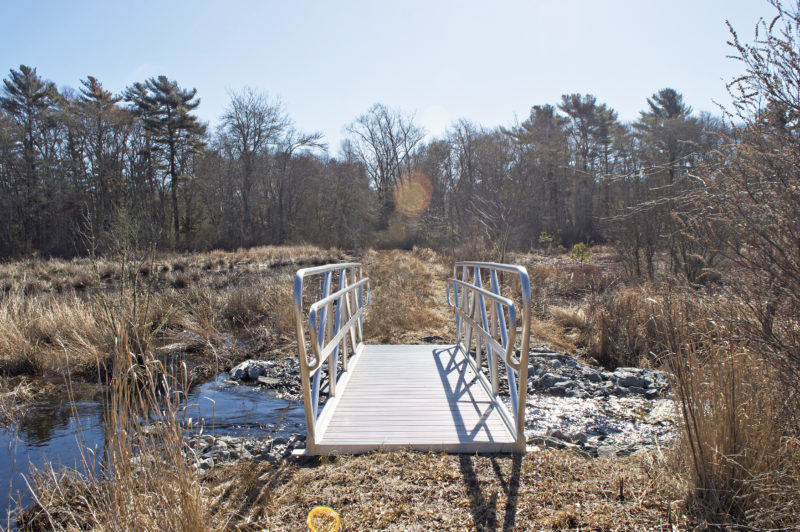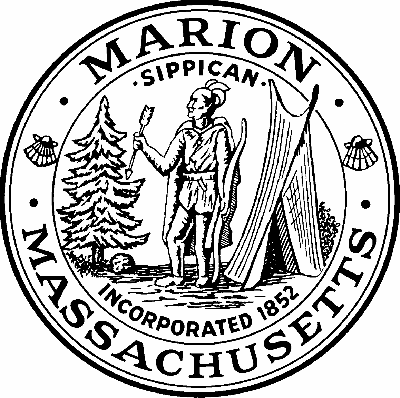Grassi Bog Conservation Area
Take in the sounds of frogs and singing songbirds on the trails that loop around Grassi Bog in Marion. This former cranberry bog, which has been restored to a more natural marsh, provides a great place for an easy walk, trail run, or wetland exploration with kids.
Features

Grassi Bog has sturdy metal bridges across its former spillways, where you can watch the water flow by and look for wildlife.
Peaceful wetlands are hidden in plain sight at Grassi Bog, located just off Marion’s busy Route 6. Once a cultivated cranberry bog, this quiet spot is now a place where people can take a walk and spot wildlife. Explorers of all ages will enjoy the bog’s flat loop path, which is an excellent spot for a trail run or to walk your dog.
Trails
Grassi Bog’s path loops for roughly three-quarters of a mile around the cranberry bog and across its former fields and spillways. The trail is set on an old service road, making it flat, wide, and easy to navigate. You can walk the large loop around the bog’s edges, or make your way through the open grid of paths that crisscross through the bog cells. (Download trail map)
Habitats & Wildlife
Like nearby Goldavitz Bog and Aucoot Woods’ White Eagle Parcel, Grassi Bog offers a window into how wetlands can be restored after human disruption. With support from the National Resources Conservation Service, the town of Marion improved the flow of water through the bog and replaced invasive species like phragmites with native plants. Grassi Bog is now a sanctuary for frogs, turtles, fish, and birds.
As you walk, watch for fierce little Cooper’s hawks hunting from the skies above the bog trails and wintering sea ducks resting in the water. The town created new habitat here for spotted turtles, an uncommon species in Massachusetts due to wetland loss. A quiet observer may be able to spot these shy, easily startled turtles basking at the edge of shallow waterways.

 Download Property Map
Download Property Map